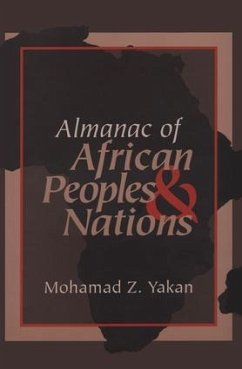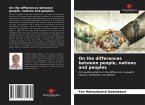The peoples of Africa are neither ethnically, culturally, nor religiously homogeneous. European colonial powers took little note of this reality in carving up the continent, a fact reflected in the periodic outbreak of civil wars since decolonialization. Likewise, Western European models of development, whether in their liberal or Marxist manifestations, have so far failed to meet African development needs. The path to stability in Africa is through its people's character and goals. Almanac of African Peoples and Nations provides an essential guide to the major ethnic groups of the African continent, highlighting the major contributions and basic features of each. The Almanac reviews Africa's language families and their respective national and geographic concentrations, explaining ethnic classification based on linguistic difference and including language groups that are not indigenous to Africa. The major African peoples are then listed by country with a statistical breakdown on their respective shares in the total population of each country and maps indicating their concentration. The major section of the volume includes a comprehensive listing and descriptive profile of each ethnic, national, and tribal group detailing their history, customs, economic systems, and political and social organizations. The Almanac points out as well which groups support revisionist political aspirations and shows the internal and external pressures they are subject to. Yakan notes that African societies are not highly integrated and must support multitudes of influential sub-cultures with conflicting agendas and loyalties. Arguing that tribalism reflects Africa's historical experience and culturalheritage, he sees the resolution of the continent's problems in consociational democracy, proportional representation, federalism, or some form of autonomous rule.
Hinweis: Dieser Artikel kann nur an eine deutsche Lieferadresse ausgeliefert werden.
Hinweis: Dieser Artikel kann nur an eine deutsche Lieferadresse ausgeliefert werden.








